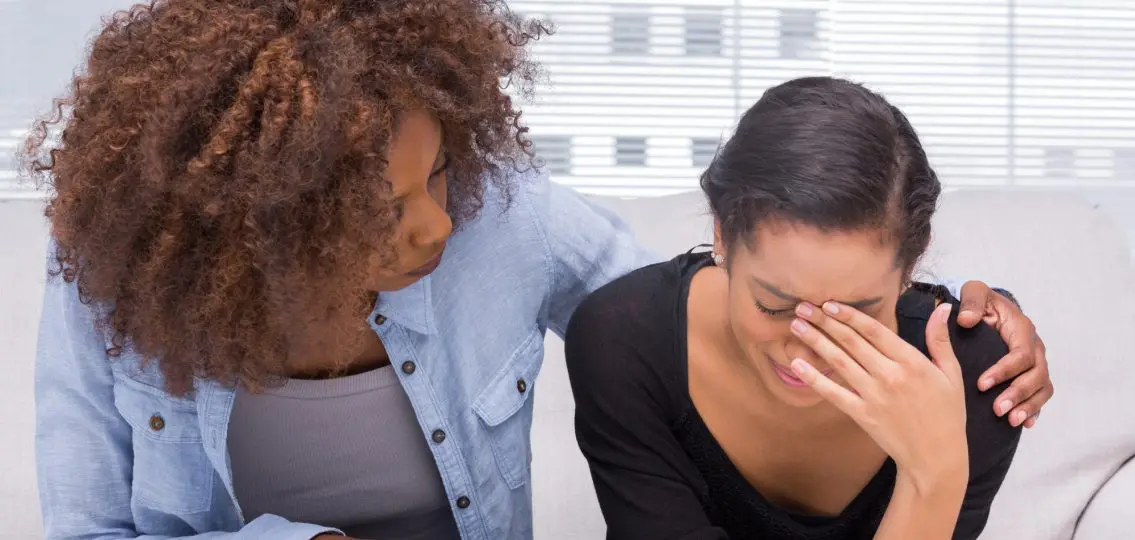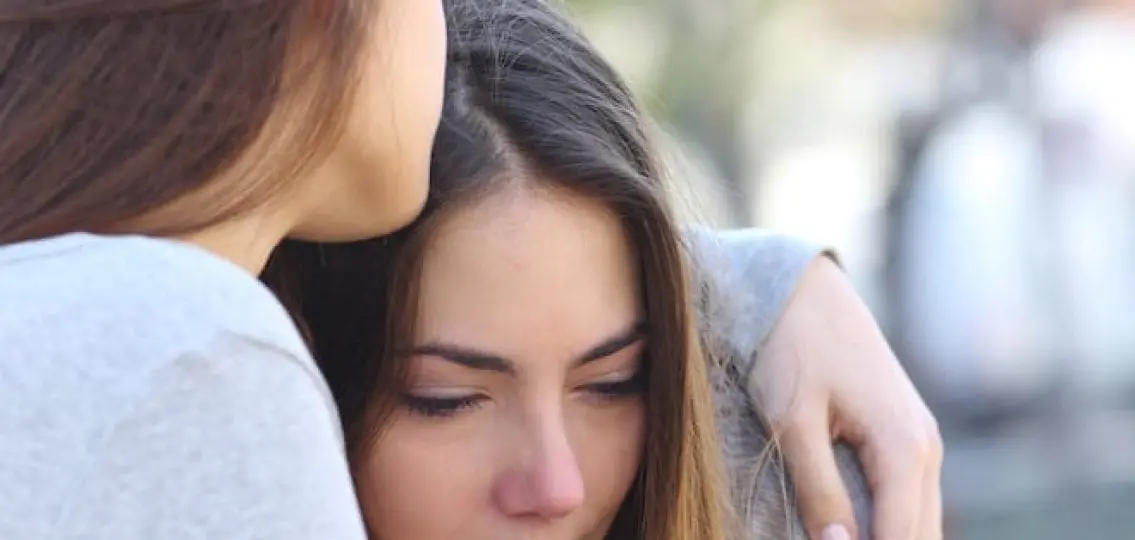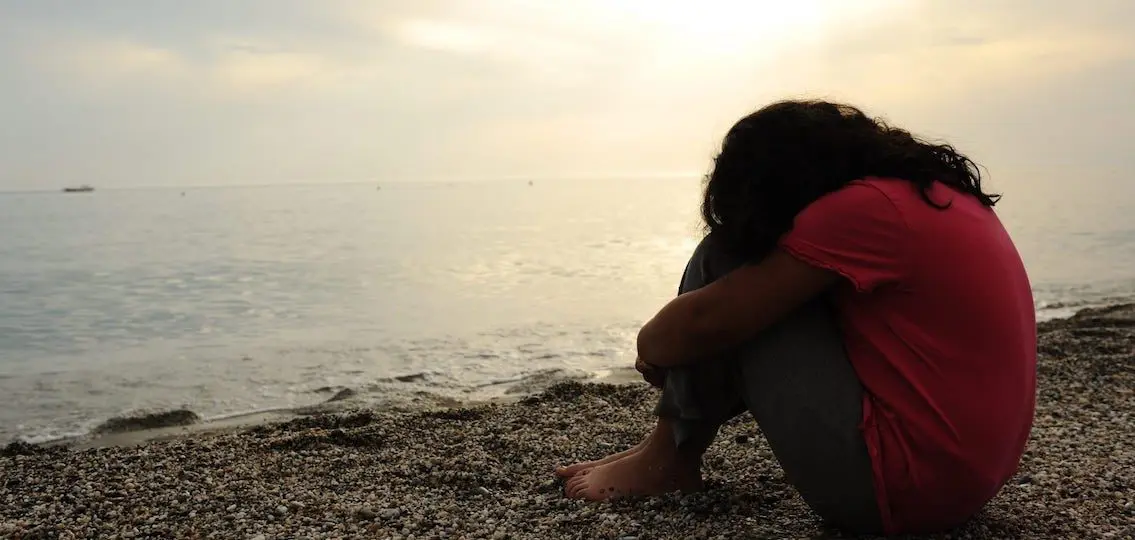What happens when a teen feels one way about a particular issue or problem and the parent has a very different take? At Your Teen, we understand that sometimes you need to look at a problem from multiple perspectives. It can also be helpful to hear from a neutral third party. That’s when we bring in a parenting expert to provide the practical advice you need to bridge the divide and help restore harmony. Here a teen, her parent, and an expert tackle experiencing the grief that followed a parent suicide..

Teen | Chloe Gudgin
When I was 15 years old, my mum passed away suddenly. I had seen her the day before and her last words to me were, “I love you.” Did I know that my mum was then going to go and take her own life? No. Do I feel guilty? Part of me does, because I knew that she was in pain, and I didn’t know what to do about it.
When I lost her, everything in my world turned negative. I didn’t find joy in anything, and I lost hope. I went through a deep, dark depression after losing my mum, to the point where it was so bad I didn’t think I was going to make it to 20 years old. (But I did—I’m here, and I just turned 20!)
The death of my mum affected me in so many ways. I got jealous of seeing girls with their mothers and knowing that I wouldn’t get that again—that I wouldn’t be able to tell my mum about a boy I liked or how I was starting university or how I was about to release my own single. I couldn’t because she wasn’t here, and I had to accept that.
The worst part was that my heart started to ache for a maternal figure, one that I wanted but couldn’t have. I would open my phone quickly to see if my auntie had sent me a message, but it would just be the group chat talking about meeting up for drinks. I was hurting so much.
Then I started counseling, and that changed my life forever. I’ve been in counseling for over a year now, and just thinking about where I am today makes me emotional. When my mum died, I lost everything about me—my interests, my hobbies, the other bits that made me me. I fought for that to come back.
The thing that hurts a lot is sitting here in a lot of confusion about my life knowing that I can’t get a hug from my mum to tell me everything is going to be okay. I sometimes feel like I just have to carry on, and that can be a lot. Sometimes I still want to sit there, cry, and feel the pain, but I don’t allow myself to do that.
None of my friends have lost their parents and no one in my family apart from my grandparents has lost a parent. Sitting there in a group of friends or around the Christmas table, seeing my cousin hugging her mum or my auntie making a massive basket for her mother—well, I can’t do any of that. A mother’s love is like no other; they will protect you and fight for you. You’re their cub, and if anyone hurts you, it’s game on. For that to be out of my life is hard—like I was thrown out into the real world. I sort of had to build up a barrier around myself.
I explain to a lot of people that grief is like a jigsaw puzzle.
A piece of you is missing, and you can’t get it back. You’re trying and trying, but that piece just won’t come back, and it hurts. It hurts so badly, but you then have to accept it to get the pieces to slowly come back together.
Chloe Gudgin, 20 years old, is a journalism student, musician, and founder of Mad Mind & Me. Find her on Instagram, Twitter, and TikTok @chloelgudgin.
Parent | Stuart Gudgin
What was I going to do? I had these two kids staring at me with tears in their eyes, and I didn’t know how I was going to face the wrath of grief. For them, I had to be strong. I couldn’t let her death be the last of me, but I was angry. How could she leave them? How could she leave it all to me? Now these two kids have to deal with the death of a parent, and I don’t know how to help them. I’m as lost as they are.
All I wanted was for them to be okay, but I knew deep down they wouldn’t be for a while.
When someone dies, you can’t just be okay and go back to your normal 9 to 5. For us, what was normal anymore? The worst bit for me was two weeks after, when everyone leaves, and I was alone with two children experiencing the most painful grief. The tears, the anger, the question of why she didn’t want to live. It was a lot for all of us.
And then the guilt: I was the last one to see her. She didn’t tell me. Maybe I could have helped her, and it always eats at me.
My son and daughter were both fading away into depression. Was I doing something wrong? And then, all of a sudden, I’d get angry again at the fact she left us. I felt alone a lot of the time, as it was just me and these two children who had to look up to me. I had to be the one to guide them to make sure they wouldn’t go down the wrong path, to stay away from the bad influences, even though I realize I can’t protect them from everything.
Now, when I look at them four years later, they are stronger and better human beings, and so am I. I see the world differently and more positively than I did before. I had to become a better version of myself for my two children. Before her death, I hadn’t experienced a death that close at hand. Yes, I had lost grandparents and an auntie, but it was nothing like losing the mother of your children. It’s only me watching them now, catching glimpses of her in them, keeping her alive in my heart.
Stuart Gudgin is a personal trainer from the UK. Find him on Instagram @stugudginpt.
Expert | Tori Cordiano
Losing a parent is always shatteringly tragic but losing a parent to suicide brings a slew of thorny questions and emotions. Chloe bravely shares the perspective of lacking a maternal figure during her formative adolescent years, and how the specific way that her mother died left her with many unanswered questions and complicated feelings.
I’m heartened to hear Chloe’s mention of the transformative effects of therapy during this traumatic period. Therapy does not eliminate the immense sadness that accompanies the loss of a parent, but it can help people learn to live with their grief. That’s the importance of grief counseling for teens.
In Chloe’s beautiful analogy, she is ever mindful that an essential piece of her puzzle remains missing, but therapy helped her learn to fit the pieces of the puzzle back together in a different way than before. Despite what we know to be true about the innumerable benefits of therapy, many individuals do not access therapy during times of suffering or struggle. When Chloe honestly shares her experience, it allows others to better understand how therapy might help them or their teenagers.
Chloe underscores the lack of a maternal figure throughout adolescence and into young adulthood as one of the lasting effects of her mother’s death.
This is a helpful takeaway for adults supporting young people after the loss of a parent, regardless of how that parent dies.
First, it is important to know that in the absence of their mother or father, children and adolescents are buoyed by their relationships with other close adults. This could be a family member, such as an aunt, uncle, or older cousin, but it is not limited to relatives. A neighbor, coach, friend’s parent, or friend of their own parent can also serve as a stable relationship after a parent dies. It goes without saying that none of these will take the place of the relationship with one’s mother or father, but that is not the goal. This relationship serves a different purpose but can be a continuous source of support, warmth, connection, and stability.
Second, it is important to recognize that just as there is not an expiration date to one’s grief, the need for these relationships with other adults does not disappear as a child or teenager grows up. While the relationship certainly changes with age, people continue to benefit from close, connected relationships with caring adults as they themselves enter into adulthood.

In sharing their devastating loss and their resulting journey, Chloe and her father help us all to better understand the ways that grief shape us. They also give us insight into how the adults in teenagers’ lives can provide true and lasting support as they navigate adolescence and young adulthood.
Tori Cordiano, Ph.D. is a clinical psychologist specializing in children, adolescents, and families. You can learn more about her work at www.drtoricordiano.com




